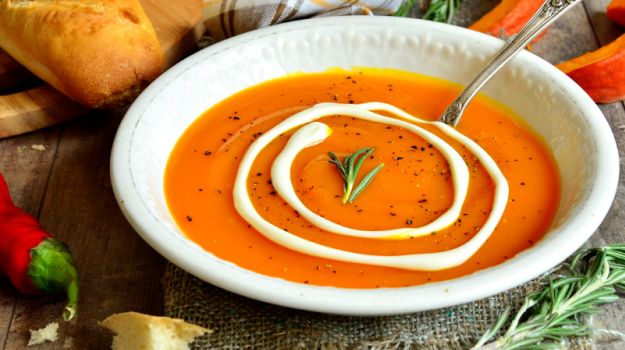Pumpkin was also called Pepon, Greek for large melon. The French called it Pompom, the English called it Pumpion and the Americans changed it to pumpkin. We call it kaddu or kaashi phal in Hindi. Kaddu is one of the few vegetables allowed to be eaten during the Navratri fasts.
Nutritionally, the bright yellow /orange colour of the vegetable is an indication that this is rich in an important antioxidant B - carotene or beta carotene. In our body, this pro-vitamin is converted to vitamin A, which performs several essential functions.
100 gm of Pumpkin provides only 26Kcal, it has 92 gm of moisture, 6.5gms of carbohydrates and merely 0.1gm of fat. It contains 1160 micro grams of Beta carotene and 8513 International units of vitamin A. An adult needs 600 mg of vitamin A and 4800micro grams of Beta carotene daily.
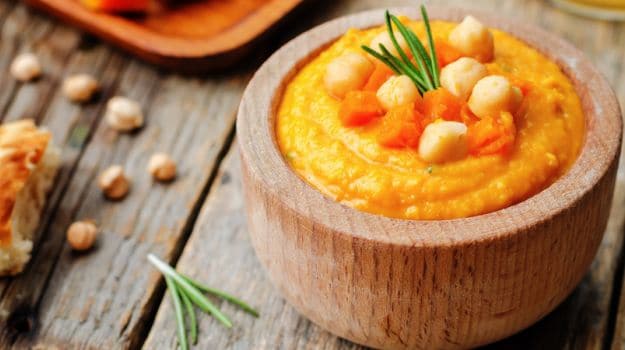
Benefits of eating Pumpkin: Eating fresh fruits and vegetables of various colours have an immense beneficial effect on our body. Increasing intake of plant foods protects us against chronic diseases.1. Prevention: Pumpkin is one of the richest sources of Beta carotene, a potent antioxidant. Beta carotene has been linked to reducing the risks of certain cancers, delay aging and protect against heart diseases.2. Protection: Beta carotene has been shown to be beneficial for prostrate and colon cancer in a study conducted by Harvard School of Public Health's Department of Nutrition.
3. Healthy Vision: Vitamin A and beta carotene are vital for the health of our eyes. While Vitamin A protects our vision, beta carotene is known to delay degeneration of the retina, prevent blurred vision and blindness.4. Immunity: Pumpkin contains Vitamin C in addition to Beta carotene; this makes it a great natural immunity booster.5. Weight Loss: Being low in calories and virtually fat free, it helps with your weight management diet plan. Not just cooked traditionally, pumpkin makes a great soup, it can be roasted and grilled or used to make a pie. You can fill up to your hearts content without worrying about calorie overload.
6. Skin Renewal: Being rich in Vitamin A, pumpkin is great for skin renewal too. It helps increase the production of collagen, providing youthful skin.While buying pumpkin, pick one without any blemishes on the surface. Every expert says that the pumpkin should be heavy for its size to be good. Don't throw away the seeds. Dry them out like our mothers and grandmothers did. They are a power house of nutrition too.
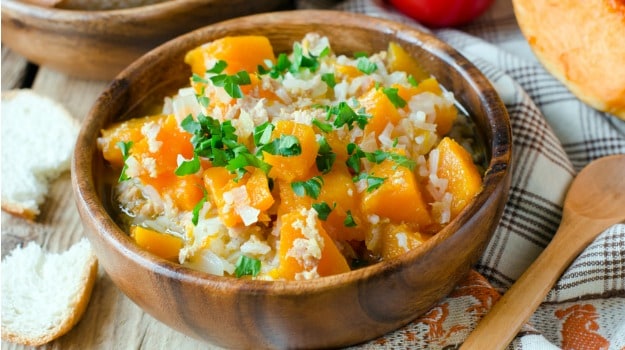
Pumpkin may not be the most popular vegetable among children and a lot of us. But this humble fruit is a nutritional wonder. Include it in your meals as often as possible. Be adventurous and cook it in interesting ways to add flavours to your table. Try some of our recipes this Navratri and load up on health with this mostly ignored superfood of nature.(Shop for high-quality Pumpkin Seeds, only on SmartCooky)
Recipe by Aditya BhalThis almost soup-y dish makes a brilliant dinner. Pumpkin flavoured with tamarind and then slowly cooked with bay leaf, mustard seeds, cumin seeds is graced with jaggery syrup and some lime across it.2. Pumpkin Soup
Recipe by Niru GuptaThis delicious bowl of mildly spiced soup can be enjoyed before your meal or if you make it the right consistency, it could also be your meal.3. Potato & Pumpkin Vegetable
Recipe by Aditya BalThis recipe has garlic as one of the ingredients and if you're off garlic because of Navratri, please exclude it from the recipe.
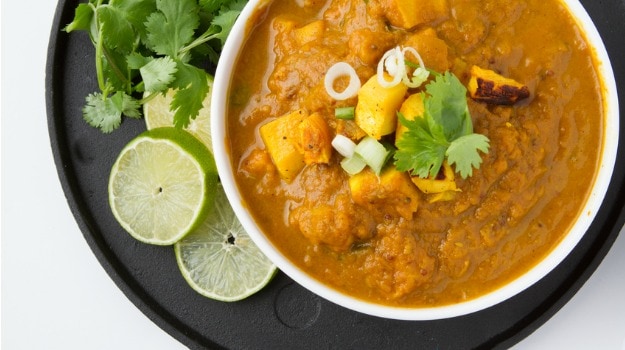
4. Pumpkin Halwa
Recipe by Niru GuptaThis silky halwa is really easy to make. All you need besides a pumpkin are some cinnamon stocks, raisins, toasted coconut and roasted almonds.
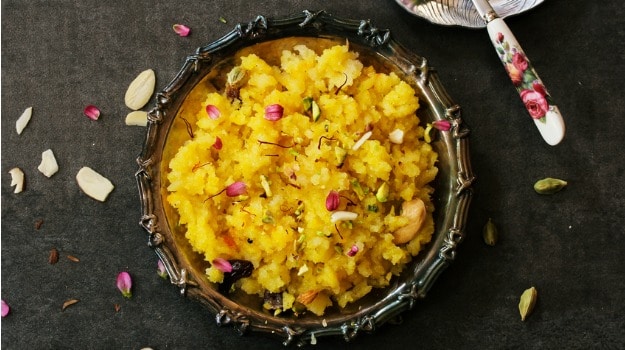
5. Erissery
Recipe by Ambili KurianThis traditional Kerala dish is made with pumpkins and coconut, two ingredients that compliment each other as well as bread and butter.







